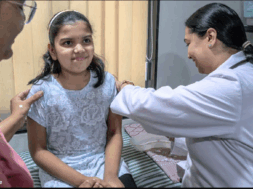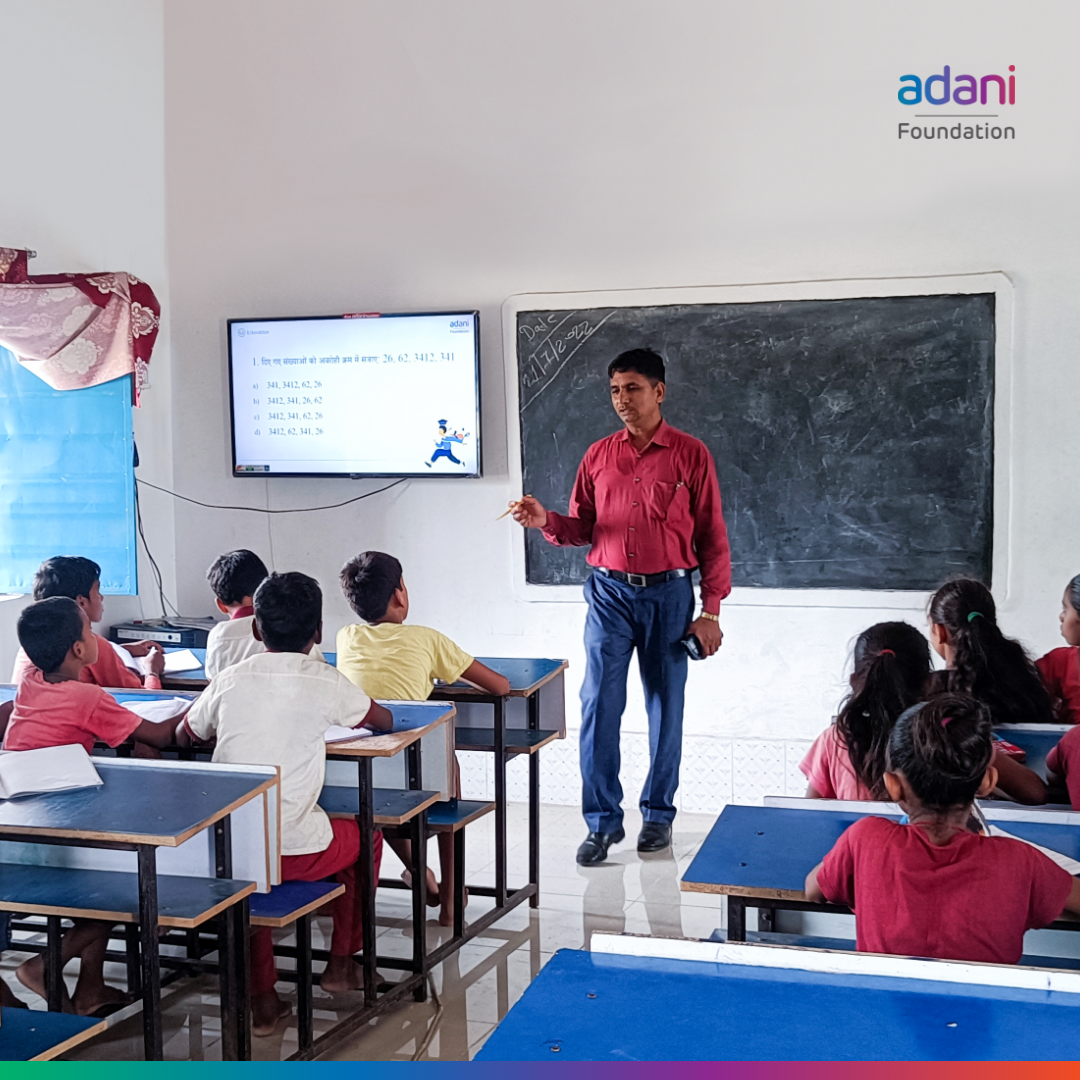
How Adani Foundation’s very far-sighted move turned out be a game-changer in education in Godda
Ahmedabad: When the pandemic hit in 2020, normal life came to a standstill, including schools being shut down. According to a World Economic Forum report, over 1.2 billion children were out of the classroom globally. Obviously, education took a massive hit, but it was also during this time that education pivoted towards digitization, with the advent of e-learning methods in which students were taught remotely on digital platforms.
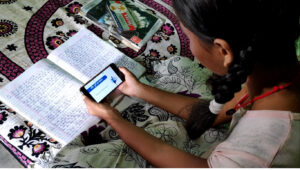
While the rest of the world only embraced digital learning methods in the Covid era, the Adani Foundation-led Gyanodaya Project in Godda, Jharkhand has been doing it since 2018.
Gyanodaya Project has been helping students from rural areas to learn more efficiently in Jharkhand’s Godda district (declared an aspirational district by NITI Ayog). In collaboration with the Godda district administration and Eckovation Pvt Ltd, it has been delivering a cutting-edge interactive curriculum through smart classrooms, furthering Sustainable Development Goal (SDG) 4, i.e., quality education.
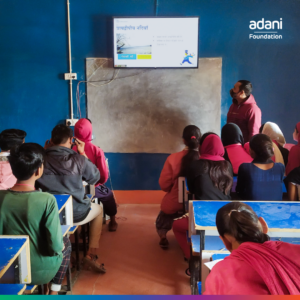
Such has been the impact of this initiative that it has been studied comprehensively at Azim Premji University, Bangalore and it has been selected as part of the University Practice Connect.
Titled Digital Learning Materials Empower Teachers and Improve Educational Achievements, the study details how with the use of digital technology and information and communication technology (ICT), the initiative has played an important role in education.
The study notes that since this program has been going on for the last five years, certain indicators of its impact are visible. The district had a poor pass rate in the class X examination. However, its position has improved drastically in the last two years, currently standing at 7th position in class 10 board exams, whereas it was 21 st in 2018.
Besides an increase in student attendance, anecdotal evidence from teachers, other education functionaries, parents, and students also indicate the usefulness of the program. The study further lauds how Gyanodaya avoids the pitfalls of typical edu-tech initiatives.
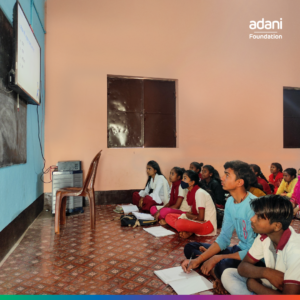
Firstly, by providing comprehensive digital learning materials covering all subjects and proficiencies which are part of the syllabus and which, in turn, may be framed within the National Curriculum Framework. Secondly, by empowering teachers and providing them the digital learning material as additional learning materials to help children grasp and understand better.
Thirdly, by addressing the digital divide, caused by no access to smartphones and erratic electricity supply, to a great extent by way of offline classrooms and teachers conducting smart classes without an internet connection. Fourthly, it is more than just a distributor of learning materials and goes beyond making these materials accessible. It has not only created adequate infrastructure in schools for use of these materials but also ensures that these are used effectively.
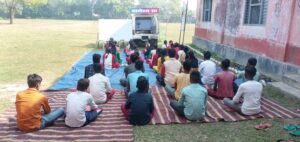
Listing the Pathways of the positive impact of Gyanodaya, the study states that it has improved attendance in schools facilitated a certain level of learning in schools that face severe shortages of teachers, and improved learning better than that achieved through regular classroom sessions.
The digital learning mission is transforming the face of education in the Godda district, covering more than 70,000 students in 284 government schools across 230 villages by empowering more than 900 teachers to become facilitators.
![AF- Gyanodaya – Class 8 result – 29 Aug[5][1]](https://english.revoi.in/wp-content/uploads/2022/10/AF-Gyanodaya-Class-8-result-29-Aug51-253x189.png)


